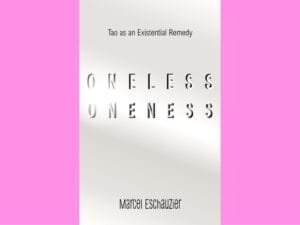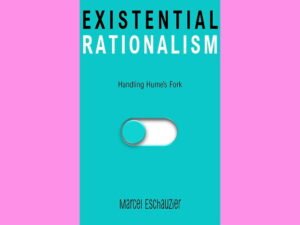This article gives a brief overview of How to See Consciousness. It’s an academic philosophical essay that examines why traditional analytic approaches to the philosophy of mind fall short, while presenting a compelling alternative framework. The Gumroad button below gives a special discount for the ebook.
Table of contents
From the back cover
“A game-changer in the philosophy of mind.
How to See Consciousness by Marcel Eschauzier is a short book written for specialist readers and contains philosophical jargon. It is the enhanced version of an academic philosophy-of-mind essay submitted on September 28, 2023, for the CFP essay prize “Is Consciousness Fundamental?” The prize is part of the John-Templeton-Foundation-funded project “Panpsychism and Pan(en)theism: Philosophy of Mind Meets Philosophy of Religion,” led by Philip Goff (Durham University) and Andrei A. Buckareff (Marist College). Added material includes an epistemology subchapter and quantum mechanics considerations.
Are you tired of online shouting matches? Craving meaningful mind food instead? This short academic essay looks at timeless questions differently. It’s a sober but comprehensive guide to a nondual relationship with the world, of which our deepest being is inextricably part. Discover what our universe is made of and what that means for science.”
What is it about?
Published in 2023, this concise technical essay presents the bare essentials of existential rationalism, an innovative metaphysical framework that embraces nonduality and revisits the Western rationalist tradition. The author explains why the analytic paradigm falls short in the philosophy of mind because it insists on defining consciousness. Such a definition implicitly involves a claim of what consciousness is not. This makes analytic philosophy inherently dualistic.
Eschauzier’s book challenges the traditional analytic mind theories, arguing that both dualistic and monistic approaches, including popular ideas like panpsychism, are fundamentally flawed. The author contends that these theories stumble over what’s known as the interaction problem-the inability to rationally explain how consciousness interacts with non-consciousness. Instead, he proposes nondualism as the most logical framework, suggesting that only consciousness can be known to exist. Consciousness, he argues, is demonstrably beyond conception, communication, and explanation, yet is undeniable.
The book goes on to explore how nondualism and reason mutually reinforce each other, creating a “virtuous circle” that justifies using inductive reasoning to study consciousness. Eschauzier extends this philosophical approach to challenge our understanding of reality itself, arguing that any knowledge claim of reality separate from consciousness is an irrational act of faith rather than reason. He calls for a radical shift in scientific thinking, urging researchers to focus on scientific facts rather than making objective knowledge claims about reality. The author also delves into related topics such as epistemology and quantum mechanics, attempting to show how nondualism revolutionizes certain aspects of modern physics.

Key insights
The essay presents the following arguments for integrating nondualistic Zen principles into the philosophy of mind:
- Consciousness as fundamental: The author posits that consciousness is the only thing we can know to exist, echoing Zen teachings about the nature of reality.
- The limits of conceptualization: Eschauzier argues that consciousness is ultimately inconceivable, a notion that resonates with Zen’s emphasis on direct experience over intellectual understanding.
- The illusion of separation: The book challenges the idea of separate subjects and objects, a core tenet in both Zen philosophy and nondualistic thought.
- The present moment: Eschauzier’s focus on the immediacy of conscious experience aligns with Zen’s emphasis on present-moment awareness.
- A rational approach to knowledge limits. The author presents a logical argument for what might be considered mystical insights in Zen tradition, bridging the gap between Eastern and Western philosophical approaches.
Conclusion—who might benefit?
The book’s specialized content and philosophical jargon make it ideal for seasoned philosophy enthusiasts, but unsuitable for casual readers or those seeking practical guidance for self-help and well-being. The latter group may be better served by Oneless Oneness: Tao as an Existential Remedy or Awakening the Other Way: Nonduality and Existential Reason.
How to See Consciousness became an Amazon #1 Bestseller in Germany and Australia in the Kindle categories Science Essays & Commentary, Epistemology, and Agnosticism.
Discover more articles about Marcel’s books here.
As a thank you for reading this blog post, use this button to get your copy of How to See Consciousness with a 20% discount:
The latest editions, mindful gifts, and exclusive gear: Visit Marcel’s Booktique on Gumroad to support Marcel’s work while reaching apex style!
How to See Consciousness—in audiobook, print, and pixel—can be found here too:
Amazon Audible | Kindle | Paperback | More retailers
Looking for mindful & funny spiritual gifts, gear, deco, or gadgets? Why not check out the affordable Amazon Merch custom designs by Simply Nondual!
Share this article:





[…] looking for a theoretical framework of rational nondualism could explore Existential Rationalism or How to See Consciousness. Those interested in the direct path to enlightenment “through reason” may read Oneless […]
[…] in other publications by the same author? Existential Rationalism and How to See Consciousness offer the theoretical framework of rational nondualism. Readers searching for a no-frills, direct […]